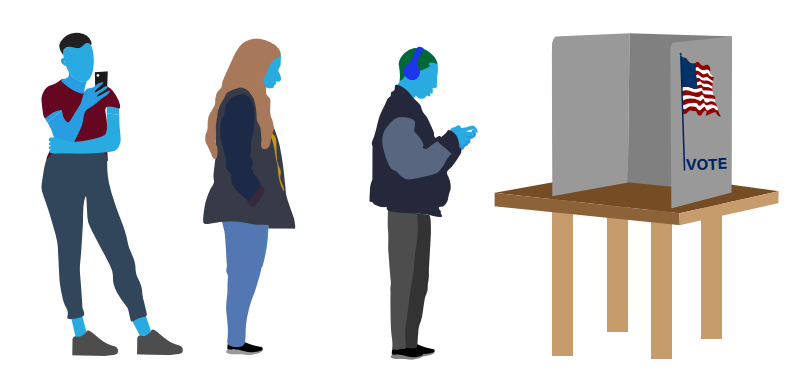Ever since the SAT was first created, the College Board has had a veritable monopoly on the United States (U.S.) standardized testing industry. Administering both the Scholastic Aptitude Test (SAT) and the Advanced Placement exams (APs), the College Board’s tests aim to assess the potential of college applicants and provide them with class credits which can be used in place of expensive university lessons. For over a century, the value they brought to students was considered undeniable. However, from concerns regarding the content and quality of AP classes to alleged racism in the SAT, the unshakable image of the College Board is slowly beginning to crumble, leading many to ask—did they ever deserve the power that they were given? While we do not deny the benefit that the College Board’s classes can have, considering the irrefutable bias in their exams and the diminishing rewards from taking them, the answer is clearly “no”.
Initially founded in 1900, the College Board—then known as the College Entrance Examination Board—commissioned Carl Brigham to create the first SAT in the early 1920s. According to PBS, Brigham’s test was based on the U.S. Army’s IQ test, which was used during World War I to choose the best candidates for higher-ranking positions. What this history neglects to mention is that Brigham, like most other proponents of the IQ test at the time, was an avid eugenicist—a fact revealed in both in recent articles written on test’s history by the National Education Association and in his own writings, such as “A Study of American Intelligence”, which he published in 1923. These supposed psychologists hoped to prove, using supposedly unbiased evidence, the existence of a racial hierarchy that placed Northwestern Europeans, and their descendants at the top, and African Americans at the bottom. This perspective was baked into the SAT’s very structure due to the ideologies being predominant since its creation, and it directly influenced decades of college admissions.
It’s no surprise, then, that this bias is reflected in the test results, even today. A 2001 study by Saul Geiser and Roger Studly found that the composite SAT scores of African American, American Indian, and Latino test-takers fell below the mean (average) for the test as a whole. It is worth noting that after starting university, these students displayed minimal differences in GPA. If the SAT were truly unbiased, then such a discrepancy should not exist. Despite the best efforts of the test makers to minimize racial bias, it is clear that one still exists. For a test pedaled as an accurate and equitable measure of a student’s aptitude, which can make or break applications to selective universities, this is deeply concerning.
Bias within the SAT is but one of the many systemic flaws ingrained into the College Board. Those who live in more financially well-off households automatically have the upper hand in the American education system, with better access to tutors, higher-quality schools, and family connections. The business practices of the College Board only exacerbate this problem. As of the 2024-25 school year, AP exams cost $99 per test for students in the U.S., an increase of 19% in the last 16 years. With the standard LASA schedule of around eight to 12 AP classes, most students will have spent close to a thousand dollars on AP exams by the time they graduate, not accounting for future price increases, which are extremely likely.
The College Board’s profits are higher than ever. There is no good reason for the already exorbitant price of AP exams to increase further, especially considering that, despite being valued at over $1.5 billion and paying their CEO nearly $2 million a year, the organization is supposedly a nonprofit. Many families struggle with finances and cannot afford even a couple of AP exams, even with the minimal financial aid that the College Board provides. If left unchecked, the College Board’s greed will quickly turn these markers of academic achievement into markers of wealth instead.
Some may argue that since the classes College Board provides are of higher educational value than those typically found at high schools, then this extra cost is worth it. However, it is increasingly unclear whether AP classes genuinely provide better learning opportunities than their non-AP counterparts. Take the example of AP African American Studies, where the College Board was more than willing to sacrifice lesson quality for the sake of placating far-right critics. Sacrificing their integrity, they bent the knee to Florida Governor Ron DeSantis in early 2023 and removed entire sections on intersectionality, the Black Lives Matter movement, and Black queer studies from the class’s curriculum. The revised version also omits important Black scholars like political activist Angela Davis and social critic bell hooks. Having shown their unwillingness to fight for their students and with the increasing influence that politicians like DeSantis have over state and national legislatures, it is more a question of when rather than if the College Board will make similar decisions in the future.
The College Board was not created with malicious intent. At its core, the organization seeks to accelerate students’ learning and better prepare them for college. However, in the pursuit of increasing profits, they have failed to consider the myriad biases in their tests, and they have begun to sideline learning to avoid the slightest criticism. This is not to say that all AP classes are useless, or that no one should ever take an SAT again. However, it is apparent that the College Board has far too much control over students’ futures and education, and they should not be allowed to continue their current monopoly without serious revisions to their exams and teaching philosophy.













